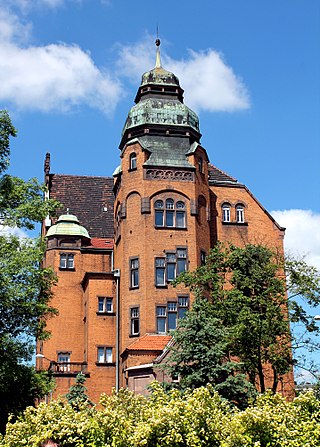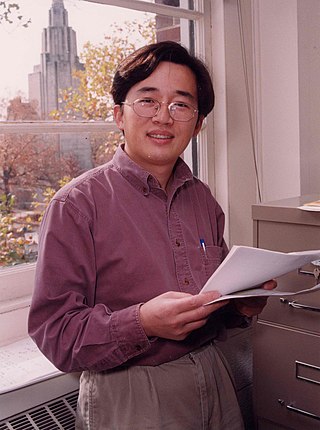Related Research Articles

Poznań University of Technology, PUT is a university in Poznań, Poland. Poznań University of Technology is known as one of the best technical universities in Poland. URAP ranked PUT as in top 6% of world universities and Webometrics ranked it at no. 842 in the world by Google citations for the year 2015. In 1995 it became the first Polish university to become a member of the Conference of European Schools for Advanced Engineering Education and Research (CESAER), an organization comprising the best technical universities in Europe. The university is also a member of the Socrates-Erasmus programme for exchange students from all over Europe, promoting advanced engineering and a European dimension. The university is home to many organizations and student circles, and the radio station Afera 98.6 MHz. The university has over 21,000 students and over 1100 academic staffs.

Sri Venkateswara College of Engineering (SVCE) is an institute in Tamil Nadu, at Pennalur, Sriperumbudur near Chennai. SVCE was founded in 1985. The college was established by the Southern Petrochemical Industries Corporation (SPIC) group. SVCE is among the top engineering colleges of Anna University in Tamil Nadu and a Tier-I institution among self-financing colleges.

The Faculty of Technical Sciences is a higher education institution located in Novi Sad, an independent part of the University of Novi Sad. It was founded on 18 May 1960 and today it is the largest faculty in Serbia by number of students and one of the largest in the region. As of 2020–21 academic year, it has a total of 15,742 students.

The National Institute of Astrophysics, Optics and Electronics is a Mexican science research institute located in Tonantzintla, Puebla.

Manuela Maria Veloso is the Head of J.P. Morgan AI Research & Herbert A. Simon University Professor in the School of Computer Science at Carnegie Mellon University, where she was previously Head of the Machine Learning Department. She served as president of Association for the Advancement of Artificial Intelligence (AAAI) until 2014, and the co-founder and a Past President of the RoboCup Federation. She is a fellow of AAAI, Institute of Electrical and Electronics Engineers (IEEE), American Association for the Advancement of Science (AAAS), and Association for Computing Machinery (ACM). She is an international expert in artificial intelligence and robotics.
Dejan Milošević is a Bosnian theoretical physicist and a professor of theoretical physics since 1999 at the University of Sarajevo. His main areas of research are atomic processes in strong laser fields and attophysics.
Nikil Dutt is a Chancellor's Professor of Computer Science at University of California, Irvine, United States. Professor Dutt's research interests are in embedded systems, electronic design automation, computer architecture, optimizing compilers, system specification techniques, distributed systems, and formal methods.

The University of Belgrade School of Electrical Engineering also known as Faculty of Electrical Engineering is a constituent body of the University of Belgrade. The word Faculty in Europe stands for an academic institution, the sub-unit inside the university.

Gordana Vunjak-Novakovic is a Serbian American biomedical engineer and university professor. She is a University Professor at Columbia University, as well as the Mikati Foundation Professor of Biomedical Engineering and Medical Sciences. She also heads the laboratory for Stem Cells and Tissue Engineering at Columbia University. She is part of the faculty at the Irving Comprehensive Cancer Center and the Center for Human Development, both found at Columbia University. She is also an honorary professor at the Faculty of Technology and Metallurgy at the University of Belgrade, an honorary professor at the University of Novi Sad, and an adjunct professor at the Department of Biomedical Engineering at Tufts University.

Sabina Jeschke is a German university professor for information sciences in mechanical engineering at the RWTH Aachen University. As of 10 November 2017, she was named member of the management board of Deutschen Bahn AG for digitalization and technology. She is also the director of the Cybernetics Lab IMA/ZLW & IfU. In the summer semester of 2017, she is on sabbatical leave to develop her research in the area of artificial consciousness, and is involved in building a think tank "Strong Artificial Intelligence" at the Volvo Car Corporation in Göteborg. Since May 2015, Jeschke has been a member of the supervisory board of Körber AG, since April 2012 chairman of the board of VDI Aachen. Beginning of January 2023 she took on an additional position as a senior advisor at Arthur D. Little.

Cristina H. Amon is a mechanical engineer, academic administrator and was the 13th dean of the University of Toronto Faculty of Applied Science and Engineering. She was the Faculty's first female dean. Prior to her appointment at the University of Toronto in 2006, she was the Raymond J. Lane Distinguished Professor and director of the Institute for Complex Engineered Systems at Carnegie Mellon University.

Yonggang Huang is the Jan and Marcia Achenbach Professor of Mechanical Engineering at Northwestern University.
Alice Merner Agogino is an American mechanical engineer known for her work in bringing women and people of color into engineering and her research into artificial intelligence, computer-aided design, intelligent learning systems, and wireless sensor networks.

Professor Branka Vucetic is an Australian-based expert in coding theory and its applications in wireless technology. She works at the University of Sydney where she holds the positions of ARC Laureate Fellow, Peter Nicol Russell Chair in Telecommunications, and Director of the Centre of Excellence in Telecommunications.
Branislava Peruničić-Draženović is an Emeritus Professor of Control Engineering at the University of Sarajevo. She was elected to the Academy of Sciences and Arts of Bosnia and Herzegovina in 1986.
Sonia Aïssa is a professor in the Institut national de la recherche scientifique (INRS) of the Université du Québec, in the INRS Research Centre for Energy, Materials, and Telecommunications. Aïssa earned a doctorate in electrical and computer engineering in 1998 from McGill University, following which she joined the INRS.

Olivia Graeve is a mechanical and aerospace engineer and Professor at University of California San Diego. She is also the Director of the CaliBaja Center for Resilient Materials and Systems at UC San Diego — a binational research institute on both sides of the California-Mexico border.
Lara Dolecek is an American coding theorist known for her work on low-density parity-check codes. She works in the UCLA Henry Samueli School of Engineering and Applied Science as a professor of electrical and computer engineering and area director for signals and systems.
Mónica Rodríguez Guillén is a Spanish astrophysicist and cosmochemist whose research includes the chemical composition of interstellar clouds including H II regions and planetary nebulae. She works in Tonantzintla, Mexico, as a researcher in the National Institute of Astrophysics, Optics and Electronics (INAOE).

Itziar Aretxaga Méndez is a Spanish and Mexican astrophysicist who works in Mexico as a researcher at the National Institute of Astrophysics, Optics and Electronics (INAOE). Her research interests include galaxy formation and evolution, active galactic nuclei, starbursts, and supernovae.
References
- 1 2 3 Gordana Jovanovic Dolecek, IEEE Education Society, retrieved 2023-01-26– via Polytechnic University of Madrid; see also attached curriculum vitae, January 2018
- 1 2 Gordana Jovanovic Dolecek: Professional career, INAOE, retrieved 2023-01-26
- ↑ Engineering section members (PDF), Mexican Academy of Sciences, 2022, retrieved 2023-01-26
- ↑ Fond akademik Vlatko Dolecek, University of Sarajevo Faculty of Mechanical Engineering, retrieved 2023-01-26